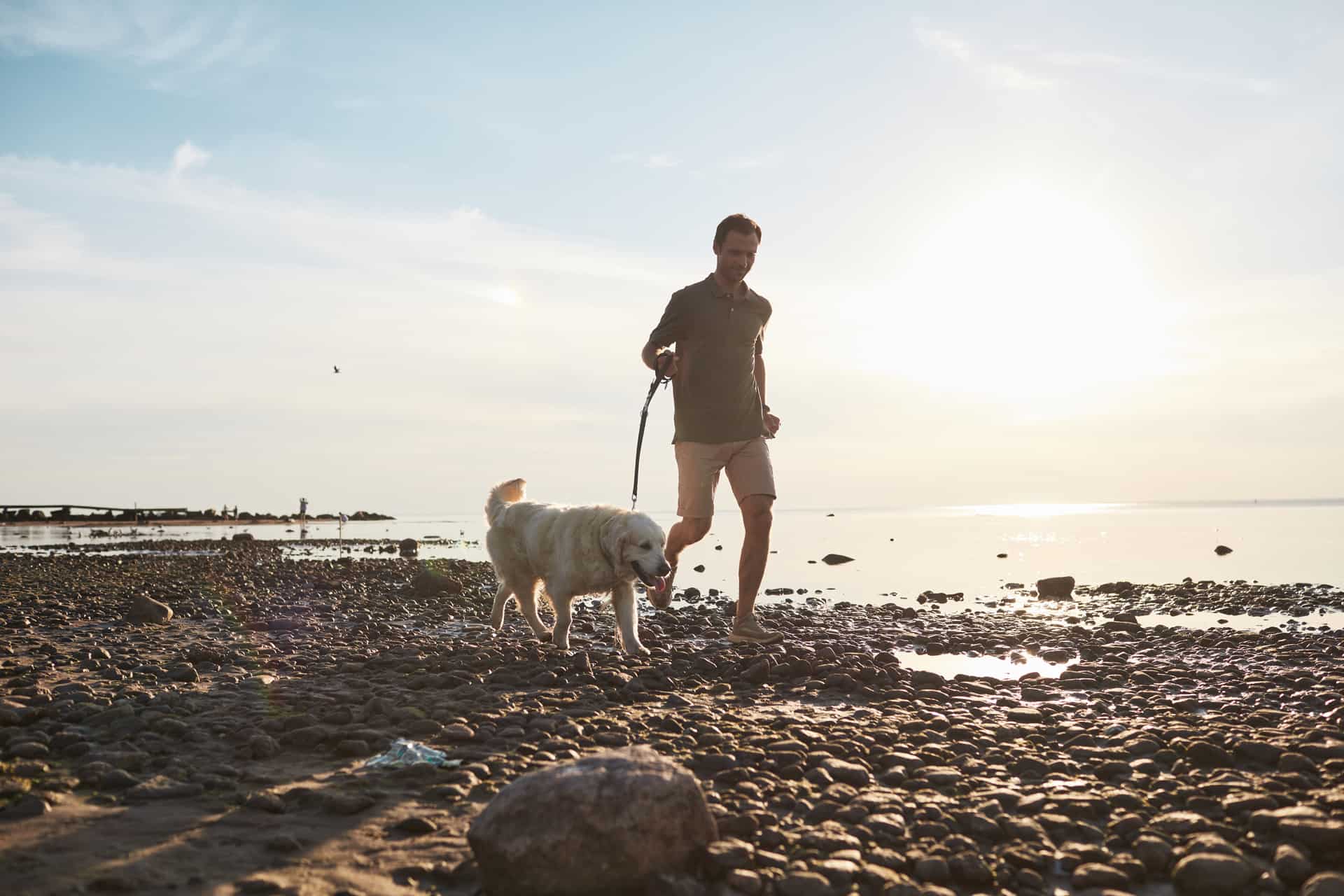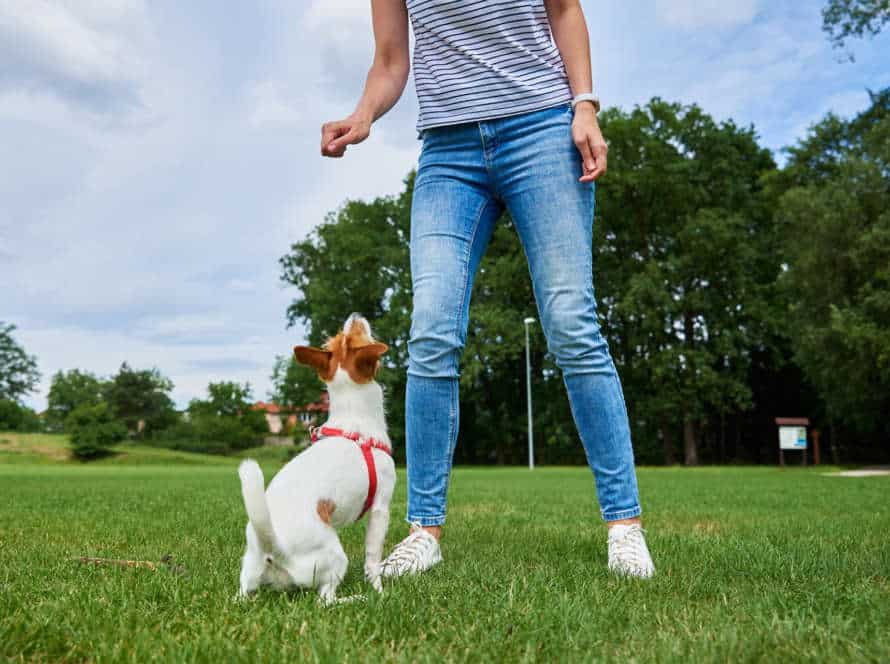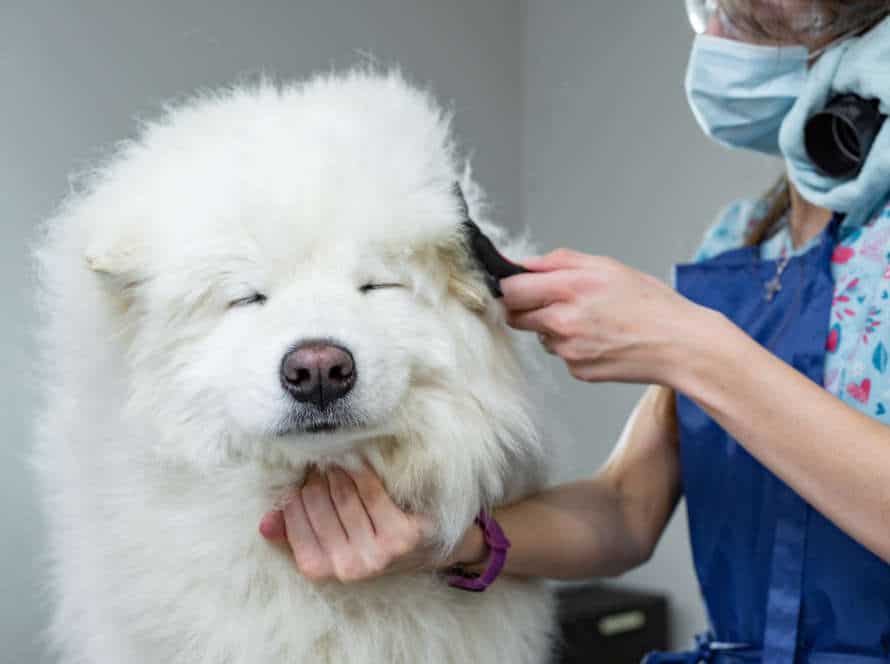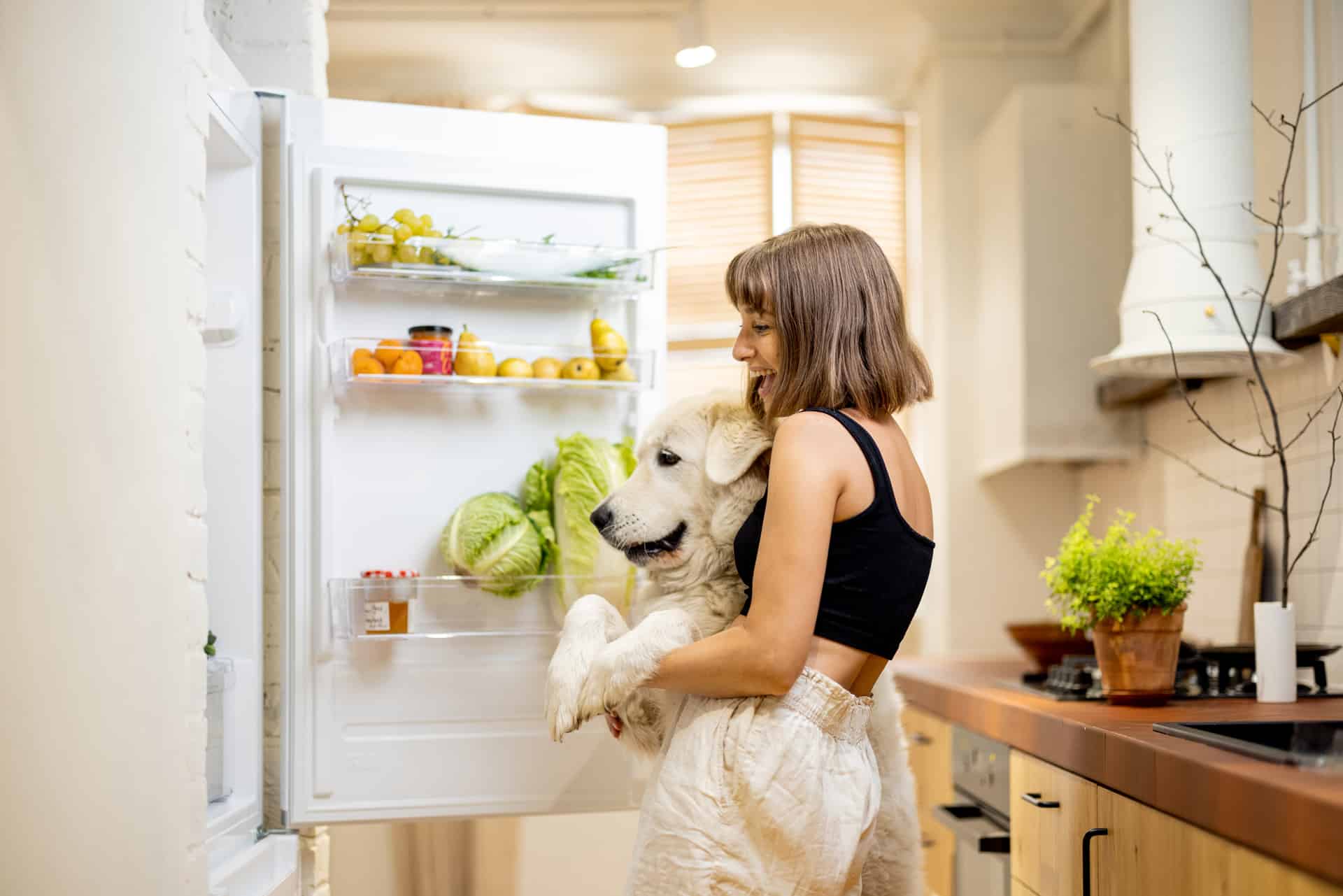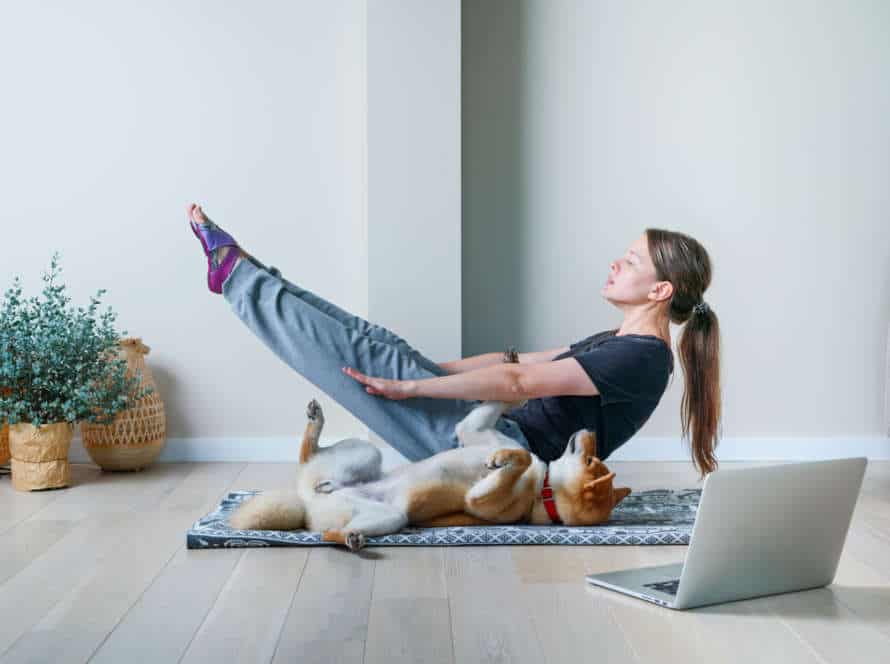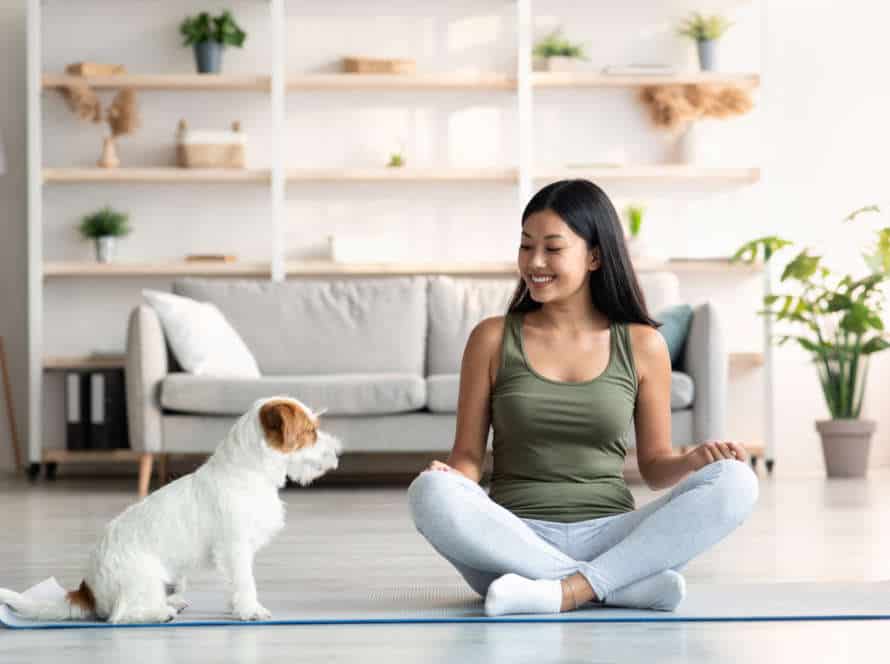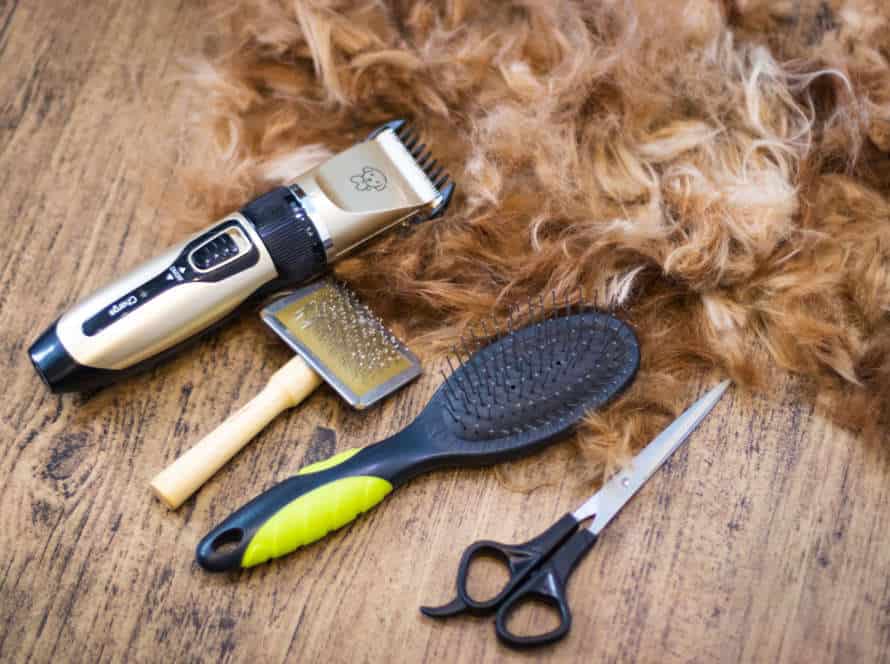How to Keep Your Senior Dog Active and Healthy
As pups age, they tend to be less vivacious and active. But it’s essential to keep your senior hound active and healthy so they can live a content and fruitful life. Here are some tips for keeping your senior pup active and healthy:
- Regular exercising: Older dogs may not be able to handle long walks or strenuous workouts, but they still need regular exercise to keep their muscles and bones strong. Short walks, swimming, and gentle playtime in the garden are great ways to keep them active.
- Proper nutrition: Senior dogs require a balanced diet full of protein, vitamins and minerals to remain healthy. Talk to your vet about the best food for your pup based on their individual needs.
- Regular vet checkups: As dogs age, they become more prone to health issues like arthritis, joint pain and dental problems. Regular vet checkups ensure these issues are detected early and managed appropriately, keeping your senior pup healthy for longer.
- Mental stimulation: Mental stimulation is just as important as physical exercise for senior dogs. Engage your pup in interactive games, puzzles or teach them a new trick to keep their brain sharp.
- Providing a secure and comfortable environment: As senior dogs become less mobile, make sure they have easy access to beds, water bowls and enough space to move.
By following these tips, you can keep your senior pup active and healthy during their golden years. Pro-tip: Regular vet visits and a nutritious diet with enough mental and physical activities will ensure a longer, healthier life for senior dogs.
Exercise for Senior Dogs
Exercise is vital for seniors pups! It helps keep their muscles and joints strong, and keeps them at a healthy weight. It can even improve posture and balance, and reduce the risk of health issues. So, what type of activities can seniors do? Let’s discover the possibilities!
Low Impact Exercises for Elderly Dogs
As our pooches age, it’s key to adapt their exercise regimens to ward off injuries and keep their overall health in good condition. Low-impact exercises are perfect for elderly dogs, since they let them stay active without overworking their bodies. Here are some low-impact exercises for senior doggos:
- Short walks: Take your senior pup for walks that last 10-15 minutes. Increase intensity and duration as they become more comfortable.
- Swimming: This is an awesome low-impact exercise for senior dogs. It works their whole body without straining their joints.
- Gentle playing: Fetching or tug-of-war with a soft toy is an enjoyable way to keep your senior dog active, avoiding too much strain.
- Slow dancing: Have a slow dance around the room with your senior pup! It’s a great way to keep them moving and entertained.
Always remember to closely monitor your senior pup’s movements. If they show any signs of pain or discomfort, seek vet advice immediately.
Cardiovascular Exercises for Senior Dogs
Senior pooches need regular exercise for staying healthy, both mentally and physically. Cardio workouts bring many benefits to older canines, like better heart functioning, weight management, and improved mobility.
Here are some cardio exercises they can do:
- Walking – low-impact exercise can be adapted to their stamina and fitness levels.
- Swimming – a great full-body workout that’s gentle on joints.
- Treadmill – allows elderly dogs to work out indoors and at a pace they’re comfy with.
- Dancing – a fun and interactive way to get them moving and spend quality time.
Start slow and raise intensity and length gradually. Ask your vet to create an exercise plan that fits your senior dog’s breed, age and health condition.
Strength-Building Exercises for Elderly Dogs
As dogs age, their physical abilities slow down. This makes them more vulnerable to health conditions like arthritis and obesity. Strength-building exercises can help!
Here are some to do with your senior dog:
- Sit to Stand: Get your dog to sit and offer a reward. Help them stand up and give it to them.
- Tug of War: Play a gentle game using a soft toy or rope. Monitor their enthusiasm and stop if they get too excited.
- Stair Climbing: Encourage your dog to climb up and down low stairs to build muscle strength and mobility.
- Slow Walking: Go for regular, slow-paced walks to promote cardiovascular health and maintain flexibility.
Before starting any exercise routine with your senior dog, consult your veterinarian. Monitor their overall health and well-being too.
Pro tip: Make exercise sessions fun and interactive with treats and praise!
Diet and Nutrition for Senior Dogs
Senior dogs need special dietary requirements. They usually need fewer calories, more protein and less fat. It’s essential to give them the right nutrition to keep them fit and healthy.
Let’s discover how to feed our senior canine friends the best nutrition.
Protein for Senior Dogs
As pups age, their food needs change. Elderly dogs need a balanced diet full of protein, vitamins, and minerals to stay active and in good health. Here are some high-protein foods that are great for senior dogs:
- Chicken – Lean protein, amino acids, and simple digestion. Grill or bake it up!
- Fish – Omega-3 fatty acids, maintaining healthy skin, coat, eyes, and reducing inflammation. Salmon, tuna, and sardines are the perfect proteins.
- Eggs – High-quality protein and fats help with muscle growth and bone health. Scramble or cook an egg for a meal supplement.
- Cottage Cheese – Protein, low fat, and calcium. Give your pup small portions of cottage cheese for muscle and bone health.
Get advice from your vet before making changes to your senior dog’s diet. They can make a tailored plan that works best for their health condition.
Supplements for Senior Dogs
Senior pooches need extra supplements to maintain their well-being. Here are some supplement suggestions:
- Glucosamine: This supports joint health and repairs. It is perfect for dogs with arthritis or other joint issues.
- Fish Oil: Omega-3 fatty acids in this oil reduce inflammation, support brain function, and benefit skin/coat.
- Probiotics: These help digestion and fortify the immune system. Important for senior dogs!
- CoQ10: This supports heart health and is great for senior dogs prone to heart disease.
Remember: talk to your vet before giving new supplements or changing diets. Also, provide a balanced diet with high-quality proteins, healthy fats, and many fruits/veggies.
Wet Food vs Dry Food for Senior Dogs
As your pup ages, their diet needs may change. An important decision is whether to feed them wet food or dry.
Wet Food: Wet dog food is great for seniors who have difficulty chewing or digesting dry. It has moisture to prevent dehydration and is often more appetizing for dogs with dental issues. But, it can cost a bit more and has a shorter shelf life.
Dry Food: Dry dog food is a great choice for those with healthy teeth and gums. It’s more affordable and lasts longer than wet food. Though, it might not give enough moisture to keep your pup hydrated.
The choice between wet and dry depends on your dog’s individual needs and likes. Talk to your veterinarian for the best diet for your senior pup.
Pain Management for Senior Dogs
Our furry friends are aging, so it’s vital to look out for their health. They can get achy and stiff, plus joint problems, which can lower their activity. Controlling their pain is key to keeping senior doggos healthy and active.
Let’s check out the ways to manage pain in older pooches:
Supplements for Joint Pain
Joint pain can be a real issue for senior pooches. It can decrease their mobility and quality of life. But there are supplements that can help!
Glucosamine and Chondroitin work together to repair damaged cartilage and reduce inflammation.
Omega-3 fatty acids have anti-inflammatory properties that can help ease joint pain in older dogs.
MSM is a natural compound that can reduce inflammation and joint pain.
Probiotics are beneficial bacteria that can reduce inflammation and improve digestion, which can lead to decreased joint pain.
It’s important to note that supplements take time to show results. Chat with your vet before starting any supplement regimen. Exercise and maintaining a healthy weight can also help.
Pro tip: only get high-quality supplements from reliable brands for maximum effectiveness and safety.
Physical Therapy for Senior Dogs
As our furry pals age, their physical abilities diminish. This leads to pain and discomfort. Physical therapy is a great way to manage pain in senior dogs and keep them active and healthy. Here’s how:
- Low-impact exercise, like short walks or swimming.
- Pain management meds – consult your vet.
- Physical therapy exercises, like massage, laser therapy, and stretching.
- A balanced diet with joint-friendly supplements.
- Regular check-ups with the vet to monitor physical condition and health.
Medications for Senior Dogs
As dogs age, medical interventions may be needed to manage pain and other age-related health issues. There are multiple medications available to keep senior dogs active and healthy. These include:
- Nonsteroidal anti-inflammatory drugs (NSAIDs) – To reduce pain and inflammation, improving mobility and quality of life. Though, side effects such as stomach upset and kidney damage can arise.
- Opioids – Severe pain, post-operative pain or end-of-life care may require these. Sedation and constipation can result as side effects.
- Steroids – Anti-inflammatory drugs used with other medications to manage arthritis and joint pain. Though, increased thirst and urination could result, as well as worsening of underlying conditions such as diabetes.
A veterinarian should be consulted to determine the best course of treatment before starting any medication for a senior dog. With proper medical care, senior dogs can enjoy a long, healthy life.
Mental Stimulation for Senior Dogs
Senior dogs need mental stimulation! It helps them stay physically and mentally fit. Keeping active prevents physical and mental decline and boosts overall wellbeing. Here are some ideas to get your senior pup’s brain going:
Puzzle Toys for Senior Dogs
As dogs grow old, it’s important to give them mental stimulation and physical activity to keep them healthy and content. Puzzle toys are a great way to engage senior dogs mentally and keep their brains active.
Here are some of the best puzzle toys for senior dogs:
- Outward Hound Nina Ottosson Dog Tornado Puzzle Toy: This toy needs dogs to spin the layers and uncover hidden treats. It stimulates their minds and encourages problem-solving skills.
- Trixie Pet Products Activity Flip Board Interactive Dog Toy: This toy has multiple treat compartments, sliding disks, and flipping lids. It challenges dogs to use their noses and paws to uncover the rewards.
- KONG Classic Dog Toy: This classic chew toy can be filled with treats or peanut butter. It provides a mentally stimulating and tasty challenge for senior dogs.
By adding these puzzle toys to your senior dog’s routine, you can help improve their cognitive function and keep them active and healthy.
Interactive Games for Senior Dogs
Senior doggos need proper mental and physical stimulation for a happy, healthy life. Games are a great way to get them active and engaged. Here are some fun interactive games for your senior pup:
- Find the Treats Game: Hide treats in your home or yard and let your pup use their nose to find them.
- Puzzle Toys: These can help prevent cognitive decline in senior dogs.
- Tug-of-War: This engages their mind and body while building confidence and strengthening the bond between you two.
- Fetch and Retrieve: Keep your senior pup active and engaged while improving their physical health.
- Spray and Play: This involves spraying water from a garden hose or sprinkler while they run around and enjoy the water.
All these interactive games can help keep your senior pup sharp and mentally healthy, preventing cognitive decline and improving their quality of life.
Training for Senior Dogs
To keep senior dogs mentally stimulated and physically active, training is essential. Here are some tips:
- Regular, low-impact exercise. Walks, swimming, and moderate playtime can help them stay active.
- Interactive toys like puzzle toys and treat-dispensers can engage their minds.
- On-going training sessions can sharpen their skills and strengthen their bond with you.
- Maintain a routine. Changes can cause stress and anxiety.
- Sensory stimulation. Offer scents, sounds, and textures for exploration.
Caring for aging dogs is not easy. But, following these tips will keep them healthy and happy in their senior years.
Pro tip: Regular vet check-ups can detect any potential health issues early.
Regular Visits to Veterinarian
Your pet’s health needs extra attention as they age. Regular vet check-ups are a great way to keep them happy and healthy. Your vet can give advice on nutrition and exercise. Visiting the vet is important for senior dogs. It helps them stay active and fit. So, don’t forget to give your furry friend regular vet care!
Health Checkups for Senior Dogs
Regular health checkups are a must for keeping your elderly pup active and healthy. Here are some key areas to focus on during vet visits:
- Teeth and gums: Identify and treat dental issues like gum disease, cavities, and tooth decay.
- Weight management: Monitor their weight, body condition score, and create a personalized diet and exercise plan.
- Mobility: Examine joints, prescribe pain meds, and suggest low-impact exercises.
- Vision and hearing: Assess vision and hearing, and provide strategies to help them adapt.
- Bloodwork: Annual blood tests to check kidney, liver, and thyroid function.
Vet checkups are vital for your senior dog’s health and happiness. Pro Tip: Ask about senior dog health insurance to help manage vet care costs.
Regular Blood Work for Senior Dogs
Regular blood work for senior dogs is important. It can spot health issues early and help your four-legged friend have a happy, healthy life. Here’s why:
- As dogs age, they can be more at risk of serious illnesses like kidney disease, liver disease, diabetes and cancer.
- Blood work can spot these illnesses early, so the treatment plan works better.
- Also, minor changes in their health can point to larger issues.
- Having regular vet visits with blood work is key to keeping your senior dog healthy and happy.
- Their diet and exercise needs change too. Regular vet visits can make sure they get the right nutrition and exercise.
- So don’t wait, get regular vet visits with blood work for your senior dog. This could help keep them active and healthy for longer.
Managing Age-Related Health Issues
Your furry friend getting older? Look after ’em! Regular vet visits can help spot health issues early. Here are some tips to keep ’em healthy in their senior years:
- Schedule regular check-ups with the vet. This includes dental cleanings and blood work.
- Keep their diet healthy and manage their weight. Obesity can make health issues worse.
- Provide exercise and playtime. Keep them active and mobile.
- Watch out for changes in their behavior. It might indicate health issues.
- Think about joint supplements, like glucosamine. This can help keep joints healthy and mobile.
With the proper care, your senior dog can stay healthy and active!
Frequently Asked Questions
Q: How much exercise does a senior dog need?
A: Senior dogs should still get regular exercise, but the amount and type will depend on their age, breed, and health. Typically, they require less exercise than younger dogs and activities that are low-impact and easier on their joints.
Q: What are some low-impact activities for senior dogs?
A: Walking, swimming, light play, and gentle stretching are all great low-impact activities for senior dogs. You can also try short, 10-15 minute training sessions to stimulate their brain and keep them mentally active.
Q: How can I adjust my senior dog’s diet to keep them healthy?
A: Senior dogs may have different nutritional needs than younger dogs, so it’s important to speak with your veterinarian about the best diet for your dog. Typically, senior dogs require fewer calories and more protein in their diet.
Q: How can I keep my senior dog mentally stimulated?
A: Keeping your dog’s brain active can help prevent cognitive decline. You can try interactive puzzle toys, hiding treats around the house, or teaching new tricks.
Q: What are some signs my senior dog may need to see a veterinarian?
A: Changes in behavior, appetite, or mobility may indicate a health problem in your senior dog. It’s important to schedule regular check-ups with your veterinarian and seek medical attention if you notice any concerning changes.
Q: How can I make sure my senior dog is comfortable at home?
A: Senior dogs may have specific needs when it comes to their living environment. Providing comfortable bedding, using ramps or stairs to help them access elevated surfaces, and providing plenty of water are all important considerations.

